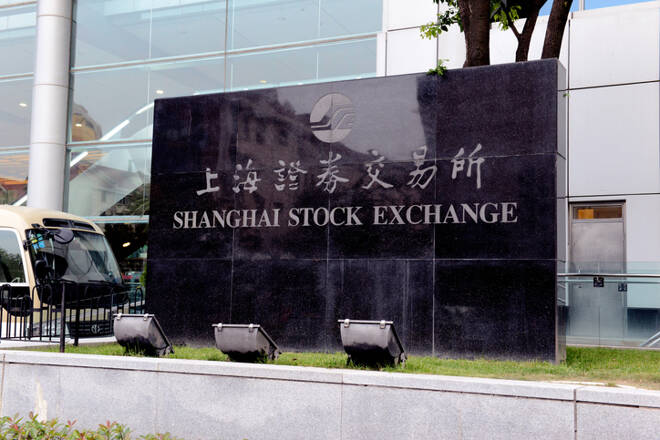Advertisement
Advertisement
Asian Shares Finished Mixed as Trade Talk Hopes Fade
By:
Hu Xijin, editor-in-chief at Chinese state-run newspaper The Global Times, said in a tweet Tuesday that China is “not putting so much emphasis on trade talks,” adding that it’s more difficult” for Washington to press Beijing to make concessions as the Chinese economy is becoming increasingly driven by domestic growth.
The major Asia Pacific stock indexes are trading mixed as they approach Wednesday’s close. Helping to keep a lid on prices are yesterday’s weaker trade on Wall Street and concerns over a possible U.S. recession after a key economic indicator once again signaled a potential economic slowdown. Additionally, tensions between the United States and China remained high despite positive chatter at the start of the week.
At 06:56 GMT, Japan’s Nikkei 225 Index closed at 20479.42, up 23.34 or +0.11%. Hong Kong’s Hang Seng Index is trading 25623.99, down 40.08 or -0.16% and South Korea’s KOSPI Index settled at 1941.09, up 16.49 or +0.86%.
China’s Shanghai Index finished at 2893.40, down 8.70 or -0.30 and Australia’s S&P/ASX 200 ended its session at 6500.60, up 29.40 or +0.45%.
U.S.-China Trade War Update
On Tuesday, China announced measures aimed at raising consumption, including a potential removal of restrictions on car purchases.
Hu Xijin, editor-in-chief at Chinese state-run newspaper The Global Times, said in a tweet Tuesday that China is “not putting so much emphasis on trade talks,” adding that it’s more difficult” for Washington to press Beijing to make concessions as the Chinese economy is becoming increasingly driven by domestic growth.
Earlier in the week on Monday, China’s closely watched onshore yuan fell to levels not seen since February 2008, and the offshore yuan dropped to its weakest since it began trading in the international market around 2010.
Wei Jiangro, a former vice minister at the Ministry of Commerce laid out four ways in which China plans to counter any negative impact from trade tensions by bolstering its own businesses. They are:
- Increasing government support;
- Opening channels to other international markets through programs such as free trade zones and the Belt and Road Initiative – a Beijing-led massive infrastructure project;
- Developing a higher-quality operating environment for state-owned and foreign enterprises; and
- Implementing policies such as tax and fee cuts.
Japan Downgrades South Korea’s Trade Status
According to reports, Japan’s downgrading of South Korea’s trade status has taken effect, a decision that already set off reactions and hurt bilateral relations. Since Japan announced the decision, South Korea decided to similarly downgrade Tokyo’s trade status, which will take effect next month. Seoul has also canceled a deal to share military intelligence with Japan.
The new restrictions order Japanese manufacturers to apply for approval for each technology-related contract for South Korean export. South Korea’s previous status as a preferential trade partner meant simpler checks on exports.
About the Author
James Hyerczykauthor
James Hyerczyk is a U.S. based seasoned technical analyst and educator with over 40 years of experience in market analysis and trading, specializing in chart patterns and price movement. He is the author of two books on technical analysis and has a background in both futures and stock markets.
Advertisement
